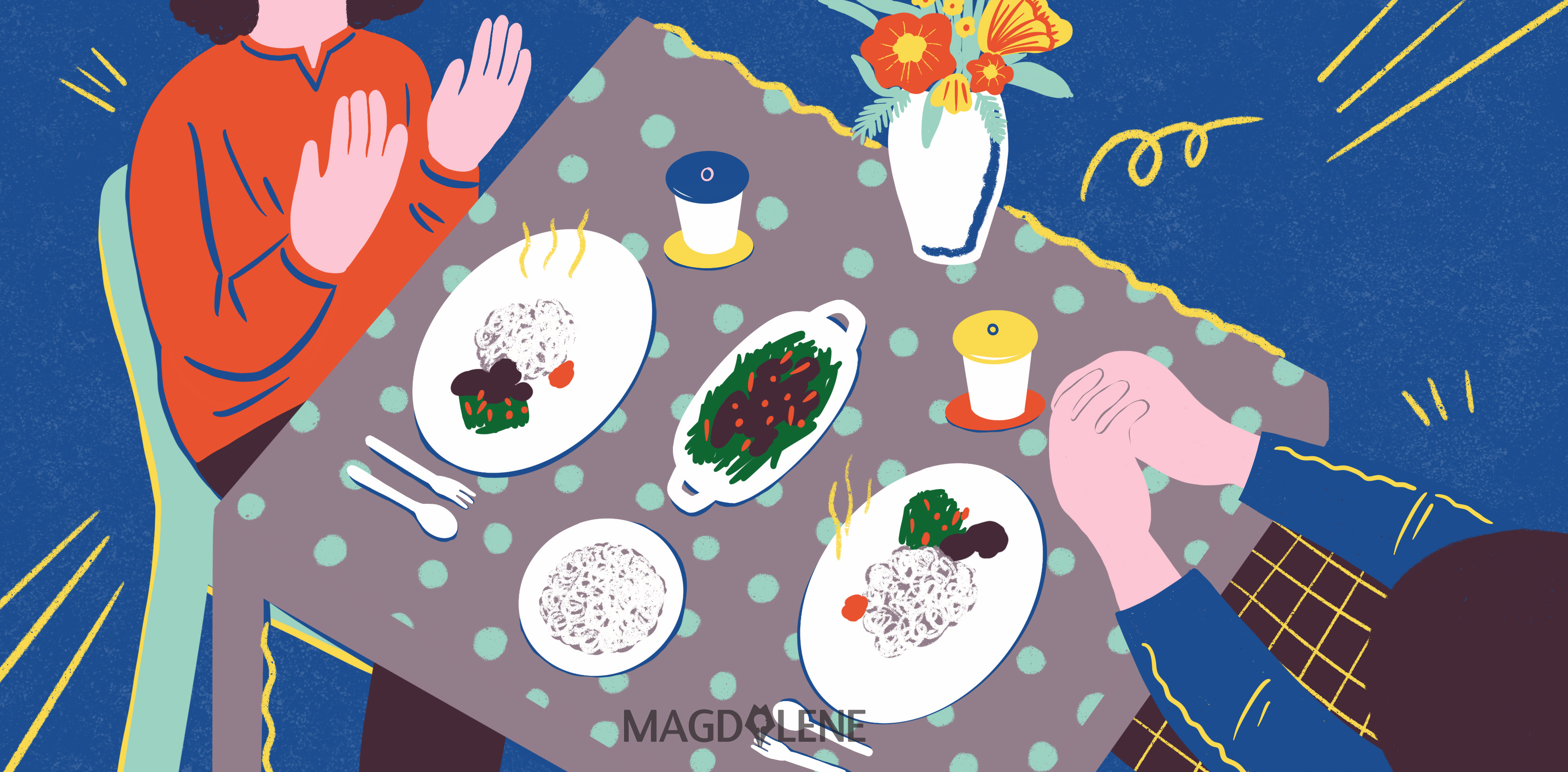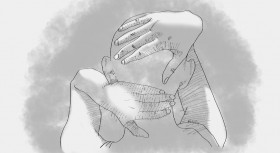Today has been one of those easy days in Ramadan for me; I woke up at 10:30, made my lesson plan in an hour, taught from 1 to 3, took a nap, and woke up for iftar. Some other days are busier, but working from home in this COVID-19 pandemic makes my Ramadan as easy as one two three. No more waking up early, driving, or being in the heating sun in the middle of the day.
Unfortunately, my journey as a muslim is not always that easy. A laid back day like today never happened when I lived across the pond.
It was July 2013 when I had my first experience in fasting far from Indonesia. I was pursuing my Master’s degree in London when Ramadan 2013 happened. I could still remember the pain of waking up at around 2 o'clock in the morning for my suhoor. While my family in Jakarta could wake up at 4 to eat their first meal of the day, I had to stop eating at around 3 as the sun rose between 3 and 3:30.
What made it more challenging was the iftar which happened after 9 o'clock at night. Even when I had an easy day of sitting down and napping it was never as easy as fasting in Indonesia. Also, there was no such thing as a fun iftar gathering with my fellow Indonesian friends in London unless we wanted to walk back home at midnight.
Some of my close friends and family told me to ditch the 18 hours fasting and do it the Indonesia time instead. They thought it would be okay for me to eat my suhoor at 4 o'clock and iftar at 6 o'clock London time because I was not a local citizen.
Also read: Like Many, I Secretly Eat Every Ramadan
I was not sure whether that was acceptable and decided to keep on fasting according to the local time I was in. Maybe it was caused by the guilty feeling of not challenging myself more during Ramadan that year.
However, a taxi driver inspired me to stop complaining when he drove me from my flat in Uxbridge to a friend's house in the north side of the city. From the name on his ID card, I could recognize that he was a Muslim and started to share my new experience in fasting in the UK. I told him it was very hard for me.
He then calmly said that maybe it wasn't my habit yet. "Fasting in four different seasons in a country like the UK is nothing when you are used to it", said the driver, sharing his own fasting experience. Also, he reminded me of how this challenge could be a new way of being closer to the God almighty.
After that encounter, I did not complain as much as I was. I tried to enjoy the challenge of fasting for more than 15 hour each day. Also, I listened to my body more. If I thought I couldn't take it anymore, I would rest and stop being so hard on myself. I guess I found the beauty of being religious in an unexpected place.
Finally, at the end of Ramadan 2013, my battle was rewarded by the delicious Indonesian food me and my friends enjoyed at our ambassador's house on the Eid day.
Fasting in London kind of prepared me to fast in New York City. It was May 2019 when Ramadan started exactly a month before I finished my teaching program and went back to Indonesia. I thought, “Why do I have to experience this here? Why can't Ramadan just wait until I get back to Jakarta so I can fast for 13 hours only?”. Unfortunately, that is not how life works.
However, I was far more mature in NYC compared to the younger me in London. I knew myself and my body more, so I knew what to do when I had to fast for more or less 15 hours. Also, fasting in New York was shorter than in London. Instead of 3AM, I had to stop eating Ia little bit before 4AM. As for the iftar, I could have it at around 8 instead of after 9 in the evening.
Also read: Beyond the Feast: Life After Ramadan
Still, the obstacles never stopped coming to tease me from controlling myself during my religious performance, especially the summer heat of New York which I, as a tropical human being, will never miss. Seriously, nothing can compete with the convenience of fasting in Indonesia.
Located along the equator line makes the sunrise and sunset in Nusantara happen at the same period of time for the whole year. Unlike the sunset in London which can fall at 10 o'clock at night, Indonesian sun sets her goodbye at around 6 o'clock in the evening. Same goes with the sun rise which makes our suhoor easier compared to those who live in countries far from the equator line.
That, of course, is not the only factor why for me fasting in Indonesia is the best than other places on Earth. It is the friends, family, and your loved ones. The tradition of iftar and reunion with your school or office mates, the family gathering on Eid day, and the food are irreplaceable. Although we can go to the Indonesian Embassy or Consulate General to celebrate Eid along with delicious traditional food served, it can never replace the tradition in Indonesia.
In the future, I might have another adventure around the globe again. The chance of fasting in a more challenging situation might also happen again. Although it would definitely be hard, I would embrace it like an old friend. An old friend who has shaped me into a strong and independent Muslim woman. An old friend who has been tirelessly reminding me to be thankful for all the joys and blessings God has given. An old friend whom I always enjoy the most being close with when I am home in Indonesia.
Ilustrasi oleh Karina Tungari







Comments